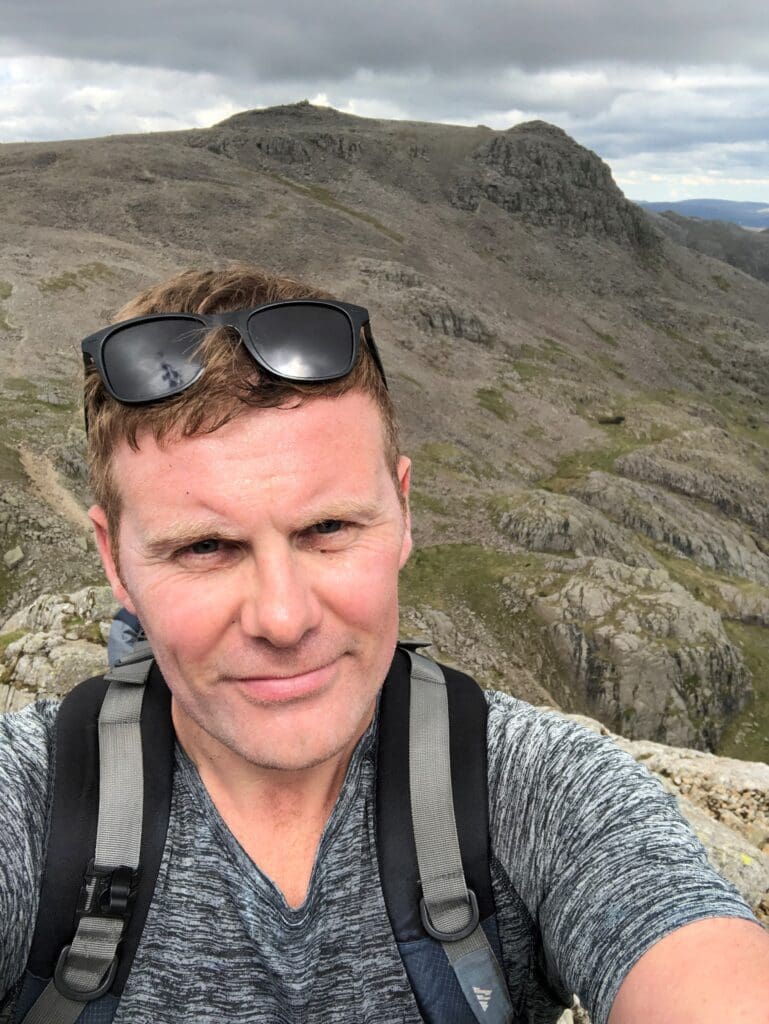How to lead large teams of Field Engineers successfully
Lee Oliver, Head of Field Operations, has led large teams of field engineers across different sectors. He is an expert in building, training and leading teams and has an ability to inspire them and to gain their trust with commitment. In this article, Lee Oliver has shared his advice on leading large teams of field engineers. As well, he has shared his experience on how to keep personal relationships with a team even when the numbers are in the hundreds.
Lee Oliver advice on leading large teams of Field Engineers successfully


Background
Could you give a brief description of your background and what led you to study Biological Sciences?
I grew up in the West Midlands and studied A Levels with a view to becoming an airline pilot. Unfortunately, at just over 6ft 4 by the time I finished my studies, I was too tall for most airlines!
So, I had a rethink, and out of my A-levels of Maths, Physics, and Biology, the latter was what interested me the most. It was also an interesting time as it was the year 2000 and so the human genome project was underway to code human DNA, in its entirety, for the first time.
Were there any childhood interests which were a factor?
As a child, on reflection, I always sought out leadership roles. For example, at school, I was captain of the football, cricket, and rugby teams as well as head boy. I definitely didn’t seek the limelight, but I had a natural pull towards those roles
Has there been a particular manager who has inspired you?
I have had numerous managers and mentors throughout my career. They have all had their strengths and weaknesses. So, I have always tried to take their best traits into my own leadership style whilst being authentic to my own natural way of leading people.
Typical Day leading a large team of field engineers
What’s your typical day like?
Every day is different. I try to think of it on a scale:
reactive through
tactical through
to strategic.
As I moved into more senior roles, I have always tried to make sure I allocate my time more towards the strategic end of the scale. That means that I allow the leadership team the space to deal with the reactive elements. That said, sometimes you just have to roll your sleeves up and get into the detail. Every day is a new challenge.
Which other people in the workplace give you support?
A whole range of departments keep the boat afloat; HR, finance, logistics, procurement, to name a few. A key part is to network effectively and allow people to support your department.
How to successfully manage a large field engineering team
As your team gets bigger, how does your leadership style need to adapt?
I really believe that responsibility should be allocated to the level in the department that is closest to the customer.
In a field engineer world, it means letting the engineer make the best decision for the customer and business, with input from their manager or team leader as required. Therefore, my job is to create an environment where this can happen and allow people to make mistakes and learn from them. This means praising people who make a mistake if they have acted with the right intentions or thought process.
Delegation
How key is delegating?
The analogy I give is being the captain of a ship.
My job is to ensure the ship stays afloat, that we don’t hit any icebergs, and we reach each port along our journey. I also need to ensure the crew are happy, well trained, and well-motivated. But I don’t maintain the engine, or choose the food to cook, or any of the other thousand things that happen each day. I trust the team to do these things and report to me anything of note, or that they cannot solve. That means, I can then coach and support as required.
The other key to delegation is to delegate the interesting tasks too. Always with an eye on development of that person. As an example, engineer uniform needs to be on brand, but I gave the choice to some engineers who are keen to develop. This tested their skills beyond what they imagined around procurement, SLAs etc. However, they got a lot out of the project, far beyond a voice in the choice.


Building relationships when leading a large team of field engineers
How do you build relationships across the team?
Most importantly, I always try to get out with the team as much as possible through either “a day in the life of” or town halls. It’s really important to listen and create a “you said, we did” culture. I’ve often found the people who see customers day to day stop coming up with ideas when they don’t hear anything back. It’s important to close that feedback loop, even if the answer is not the one they want to hear. Most importantly, make sure people feel they are heard.
Feedback
How do you seek feedback if you are always seen as very senior/separate from the team?
When starting a new role there is always a wait and see period where the team wait to see what your style is. It’s during this time I try to over communicate and be really accessible. I’ve always found that the more vocal team members can either be advocates or detractors. By making time to answer their emails and calls it cascades to the rest of the team.
The balance is making sure I don’t undermine the rest of the leadership team so I always talk it through with them too so they understand the approach. After a while I start asking “have you talked this through with your team leader or manager as they will be able to make that decision or choice”. This does two things. Firstly, it shows the leadership team they can make decisions and secondly means the team members feel that decisions can be taken locally and at speed as appropriate.
Handling change when leading a large team of field engineers
Is the only way to stay effective as the team grows to constantly change and adapt?
The important thing is to have an agile culture where the team isn’t afraid to try new things and sometimes fail. The key is to have genuine diversity of thought. As people, we often want to give jobs and promotions to people who think like we do. I have always tried to look at the team and see where our gaps are. This includes diversity of background, gender, and ethnicity, but it isn’t limited to that. I’ve used Insights in a couple of organisations. For example:
If the team is very red (driven) perhaps a gap is blue (detail orientated).
Whatever the makeup of the team the key is to be aware of it and make sure it is diverse. Once that is in place my role is to make sure everyone has a view and speaks up. It is never a democracy, and the leader needs to have a veto, but I’ve never been afraid to completely change my mind based on feedback from my team. I believe that shows a strength as a leader, not weakness.
Indirect management
How do you successfully change from direct to indirect management, and how do you keep a personal touch?
I’ve always tried to treat people how I want to be treated. Always trying to put myself in the other person’s shoes, whether dealing with:
trade union colleagues
engineers
other managers
other departments.
When you can see things from others’ points of view it is easier to talk things through.


Most challenging part of leading a large team of field engineers
What do you find most challenging when you are working – logistics, admin or people?
For every person it is different as we all have our personal preferences. My natural style is working with people and challenging the status quo. It’s very important as a leader to understand your own preferences. When things get hectic or stressful, we naturally default to our person preferences. Being aware of this means making time for those things we don’t love doing as much. For me that is admin. As such I always allocate time each week to box it off. It’s a basic skill of time management.
What has been your most challenging job to date?
I have worked in sales, procurement, logistics, before more senior roles. Paradoxically, the more senior you become the easier the role is because you have more resources to draw on. Every role has its challenges, and when it doesn’t, it’s certainly time for a change!
Time management
How do you cope with having lots of small issues to deal with each and every day?
What may seem small to one person can actually be a big issue to a customer or colleague (or both). Empowerment of the team gets the majority done.
How do you cope with the fact that you never finish a day with everything completed?
I always try to spend an hour each Monday writing down my three priorities for the week ahead. Also, I reflect on the past week and what was achieved versus the previous week’s goals. I find it’s a great way to stay focused.
Making a future star
Do you ever have the chance to go out on calls with someone from your team to watch them in action and to meet the customers?
Never as much as I would like, but I always try to be out with an engineer at least once per quarter.
What sort of personality traits and skills are ideal for working as a field engineer?
There are four key skills:
the ability to work by yourself
good communication skills
good diagnosis skills
tenacity.
Out of those communication is key as the best engineers communicate well with customers, even when the news is not what the customer wants to hear.
Motivation when leading a large team of field engineers
How do you motivate your team?
As a team purpose is crucial. Without that, motivation is very hard. Once there is a purpose and goals and milestones have been set, then achievements are tangible. I find it useful to stand still every couple of months and reflect on what the team has achieved as it often feels like nothing has changed when actually lots usually has.
The layer below that is individual motivation, and for each person it is different.
How do you support someone in your team when things have gone wrong because of a mistake?
I always say, if you aren’t making mistakes, you aren’t trying hard enough! That means, if someone has made a decision for the right reasons, they are praised, even if it results in a mistake.


How do you find the manager or team leader of the future?
For me it’s a lot about how they deal with people and how they communicate. If they can influence people without the authority of a manager title, that is usually a great sign. To find that out, it’s important to give aspiring leaders opportunities to lead smaller projects or sit in decision making forums.
Further reading
Where do excellent Field Service Managers come from?
How to build successful global technical field support teams


Responses